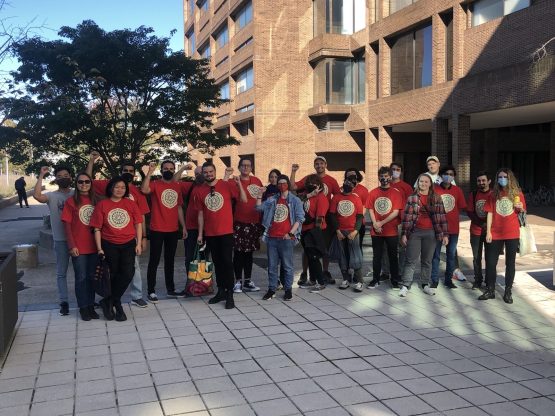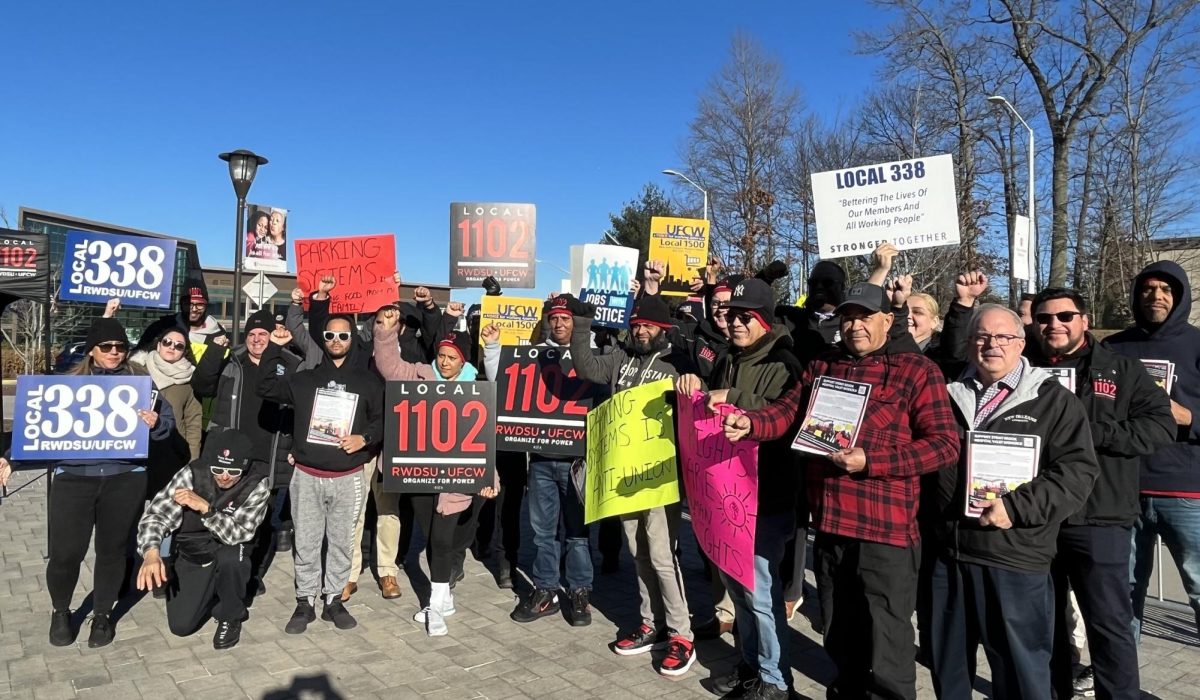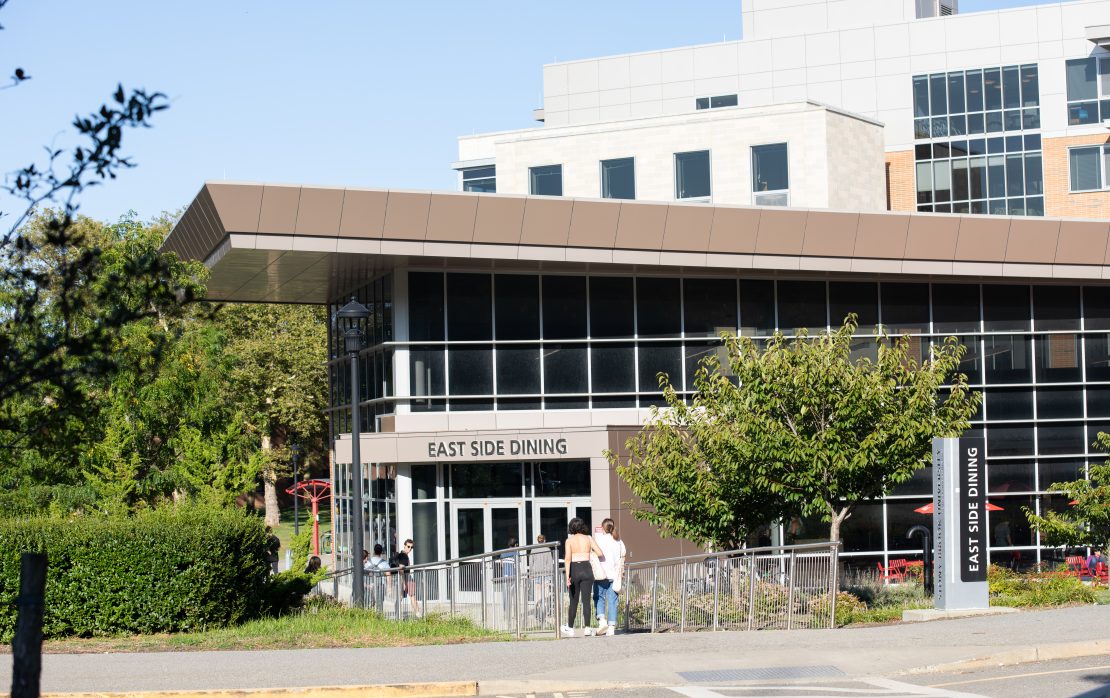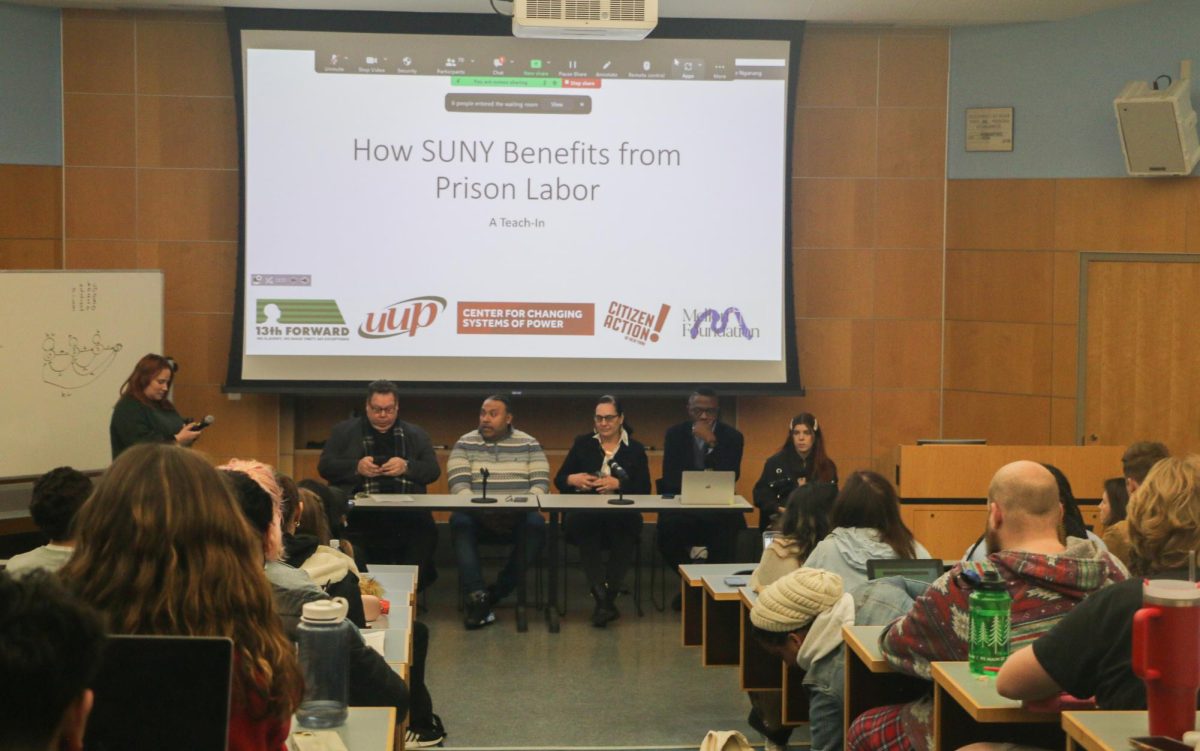
In response to the Graduate Student Employee Union’s (GSEU) Living Wage Campaign, the Stony Brook administration has agreed to announce a wage raise for graduate student workers on Nov. 19.
While the campaign has been going on for several months with multiple organized attempts to notify the administration, it wasn’t until the GSEU called to boycott President Maurie McInnis’ symposium that they garnered a response.
On Sept. 30 the GSEU hand-delivered a 10-foot scroll with nearly 600 signatures to McInnis’ office, demanding graduate workers be paid a living wage above the poverty line. The GSEU gave McInnis 10 days to respond.
On day 11, after hearing nothing from the administration, the GSEU announced over social media that they were boycotting the President’s Inauguration Symposium on “Tackling Inequality in Higher Education: Past & Present.” By the end of that workday, they received a response from the administration requesting a meeting to discuss the boycott and a living wage for graduate workers.
“I believe it took longer than 10 days for President McInnis and people from administration to respond to the GSEU’s petition because we had to induce a response on day 11,” John Klecker, chapter president of the GSEU, said in an email to The Statesman.
The GSEU revoked their boycott and 30 members attended the symposium dressed in red union shirts, accounting for about half of overall attendance.
On Oct. 15, the GSEU representatives met with David Gray, interim VP for Budget & Financial Planning, Heather Montague, interim associate VP for Financial Planning & Analysis, and Sharon Chambliss-Alvarez, director of Human Resource Services, to begin preliminary bargaining for a living wage for graduate workers.
Klecker said that in the meeting they discussed how the University’s endowment has grown by 25% over the last year and the budget is now operating at about $3.5 billion dollars. Klecker explained that if Stony Brook raised the wage of every graduate worker to $40,000 a year, it would cost the University about $20 million, which is 0.5% percent of the total operating budget.
“When viewed from this perspective, paying grad workers a living wage is a matter of priorities and what to fund, not whether it is feasibly possible,” he said. “Other issues may be important but lifting the workers out of poverty that perform the majority of research and instruction at this university should be a top priority.”
An “extremely low income” for one person in Suffolk County is $27,300 a year, while an “extremely low income” in New York City is $25,100, according to a 2021 federal study by the United States Department of Housing and Urban Development.
Klecker said this data suggests that graduate workers in Nassau and Suffolk County should be getting paid about 8% more than graduate workers in New York City in order to afford a similar level of housing, but often this is not the case. The minimum stipend for graduate workers at Stony Brook is $20,000 on a 9-month appointment while graduate workers at Columbia University are paid $31,140.
Anthony Gomez, a third year Ph.D. Candidate in the English Department at Stony Brook and a member of the GSEU, believes the stipend isn’t just low, “it’s outrageously so.”
Gomez said the most troublesome part with his wage is having to choose between holding onto his “small emergency fund” or choosing to see his family.
“For those of us who aren’t from New York, breaks during the school year can become a mental struggle because the cost of air travel and the high cost of rent turns the decision to visit home into a potential financial disaster,” he said.
Jessica Hautsch, a fifth-year Ph.D. candidate in the English department and current employee at the Academy of Civic Life, emphasized how her stipend is barely enough to cover the cost of renting a one-bedroom apartment on Long Island. Fortunately, Hautsch lives with her partner and their dual income lessens some of the financial strains of paying rent.
“Grad students shouldn’t have to be part of a multi-income household in order to comfortably reside in the same community as the university,” she said.
Hautsch pointed out that although the University pledges initiatives for diversion, equity and inclusion, graduate workers are left out of the conversation.
“It currently takes a considerable amount of privilege or a massive amount of debt to survive on our university stipend,” she said. “By not paying a living wage, who are we excluding from the University?”
Stony Brook is not the only university to have people demanding better treatment for graduate workers.
Labor strikes for higher wages are happening across the country. NYU’s graduate student union went on strike earlier this year and secured a substantial increase in pay and benefits. Harvard’s graduate student union is threatening to strike on Nov. 16 if the university fails to address their unfair labor practices, and Columbia recently organized the second largest strike in the U.S. that occurred earlier this month.
On Nov. 17, two days prior to Stony Brook’s wage increase announcement, the SBU Labor Council is holding a “Rally for Respect and Fair Wages” that will take place at the fountain in front of the Administration Building. The GSEU along with CSEA Local 614, UUP Health Sciences and UUP will be in attendance with speakers from each union to discuss their respective campaigns and labor issues.
If the GSEU is not satisfied with the wage increase announced next week, Klecker said they will continue to organize and mobilize until they receive a living wage.
“When I look at the operating budget of this university and the size of the endowment I know that there is money available to pay graduate workers a living wage,” he said. “If SBU continues to underpay some of its hardest working employees we will continue to organize to support them and escalate our actions in our campaign for a living wage.”
















